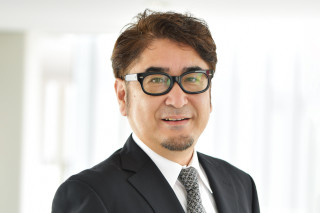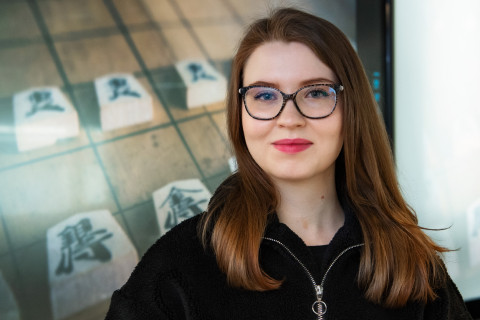Maiju Karjalainen graduated from the University of Eastern Finland’s and Toyohashi University of Technology’s (TUT) joint Master’s degree programme last autumn. The double degree included studies at a Japanese university as well as an opportunity to do an internship in Japan.
- Text Marianne Mustonen
- Photos Raija Törrönen and Shigeki Nakauchi
“I started studying computer science in Kuopio in 2015. At the moment, I work as a project researcher in Professor Pauli Miettinen’s Algorithmic Data Analysis Research Group, and I plan to start my doctoral studies soon,” Karjalainen says.
“I found out about the programme in 2018 when it was first launched. I already had plans to go on a student exchange, and the time was just right for my studies. I was interested in the programme because it offered two degrees, an internship opportunity in Japan, and studies at a Japanese university. I have studied Japanese when I was younger, so I was also interested in the possibility to polish my language skills.”
According to Karjalainen, the best thing about the degree is that it offers an incredibly great opportunity to complete both studies and an internship abroad, and to learn in many different ways.
“I believe this is beneficial not only because of the degree, but also because it gives an experience of working and studying in a very different culture.”
Studying in Japan was slightly different from what Karjalainen had become accustomed to in Finland. There were relatively few courses, one course always had only one lecture a week, and there often weren’t any assignments.
“Studying was relatively relaxed, but the aim was to focus on my own research and Master’s thesis. The language of instruction was English, but people speaking English, especially outside the campus, were few, so if you wanted to do more than just study, Japanese skills were very useful.”
The topic of Karjalainen’s Master’s thesis was related to the detection of people’s expertise based on their eye movements.
“The original topic of my thesis was related to eye tracking of pathologists, but due to the coronavirus pandemic, it became difficult to gather data on pathologists’ eye movements. Hence, the topic was changed to examine the eye movements of shogi players.”
“The aim of the study among pathologists would have been to examine, for example, whether a professional’s way of looking at tissue samples could be used to develop assistive technologies for pathologists’ work. Now my thesis mainly dealt with differences between expert and novice players of shogi, mainly in terms of their eye movements and pupil sizes.”
“For my thesis, I used an eye tracking device to collect data on the eye movements and pupils of advanced and beginner players, and I analysed the impact of the player’s skill level on these features.”
“Another great feature in this degree programme are the differences between the University of Eastern Finland and Toyohashi University of Technology. At UEF, we have more theoretical studies in computer science, whereas TUT is more focused on the practical side of things.”
The two universities’ approaches complement one another and, as a whole, the skills provided by the degree are highly versatile.
Maiju Karjalainen
Researcher
“Japan is a beautiful and interesting country, and it was really great to experience the rich Japanese culture, beautiful nature and delicious food, and to make new friends from different countries,” Karjalainen says.
“The double degree programme provides students both in Finland and Japan an opportunity for international mobility in education on computer science, and the programme includes industrial cooperation in the form of internships in companies in Japan and Finland. Both Finland and Japan are recognised as ‘high-tech’ countries in Europe and Asia, and we have similarities in policies of education of high-tech.”
“But there are also differences, or should I say several unique features, in work and lifestyles, cultures and societies in both countries. International mobility in education is not a simple trip, but a perfect opportunity for students to feel such similarities and uniqueness of both countries.”
“In addition to the internships, we have several IT-related courses, e.g., in computer vision, AI systems, human cognitive science, VR systems, etc. After taking the courses, students are encouraged to immerse themselves in Master’s level research.”
“ Laboratories in Japan look like ‘a family at the university’, that is, there are about 10-30 Bachelor’s, Master’s and doctoral level students with their rooms and desks, lab meetings, and some social events at labs. This is one of the unique features of Japanese universities.”
“So far, students from Finland have done internships at Japanese companies like Honda, Olympus and NHK. Japanese students, on the other hand, have done internships in Finnish companies like Detection Technology, Optomed and Planmeca.”
“It is still unclear when we can meet physically because of the COVID-19 pandemic, but the programme provides online education, including internships. Hopefully, we will see each other physically in the near future.”
Professor Shigeki Nakauchi, Vice President of Toyohashi University of Technology
All students belong to the laboratory community.
Shigeki Nakauchi
Professor, Vice President of Toyohashi University of Technology





